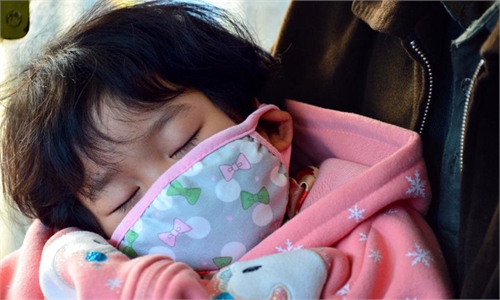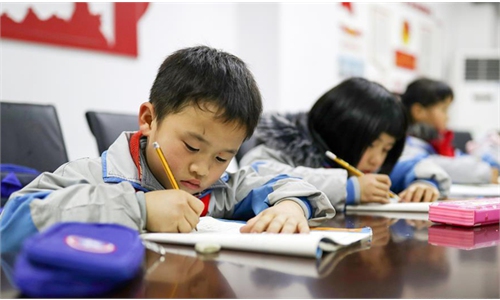Rise in online 'pillow talk' services in China reflects sleep deprivation trend among young people

Sleep Photo:Unsplash
Once cracked down on by the Chinese government, online "pillow talk" services and ASMR (autonomous sensory meridian response) videos are once again gaining ground on the internet in China. With sleep-aid products sales greatly increasing over the past two years, the phenomenon reveals that countless young Chinese have been struggling with a lack of sleep, especially since the beginning of the COVID-19 pandemic."Pillow talk" is a newly emerging service in China often provided by college students as part-time jobs. According to media reports, people who have trouble sleeping can pay a "pillow talk person" to talk to them online until they fall asleep. The job can pull in a quite comfortable salary of 20, 000 yuan ($3,116) a month.
"You can talk about whatever you want with them," a staff member with Renjianshudong (Lit: world treehole), an online shop providing "online pillow talk" services on Chinese e-commerce platform Taobao, told the Global Times on Wednesday.
"Once customers place an order we will have a person to reach them through WeChat or QQ to start a conversation," said the staff member.
"Customers can choose the gender of the person and decide on the topics to be discussed."
Sessions can be booked for anywhere from half an hour to an entire day and cost 5 to 650 yuan depending on the session length and the rating of the "pillow talker," which is determined by the quality of their voice and conversation skills. Sessions after midnight cost double the regular price.
Among the people suffering from insomnia in China, young people 10 to 30 years old account for more than 60 percent of the whole group, according to a report from Ali Health, a flagship healthcare platform in China.
"The customers are basically young people and there are more women seeking out the service," Xiaodi, a 25-year-old male pillow talker who has been in the industry for two years, told Chinese news site The Paper on Tuesday.
Similar online pillow talk services were previously provided in China but were later shut down for providing "vulgar pornographic content."
Another sleep-aid for young Chinese that was also cracked down on for "spreading vulgar and obscene content" are ASMR videos, which are supposed to contain calming sounds that cause "tingles" in the listener. These could once be openly found on several Chinese audio and video platforms including Bilibili, Lizhi FM, and NetEase Cloud Music.
While searching for "ASMR" specifically won't produce results, these ASMR videos can still be found on a variety of online platforms by searching for key words such as "white noise" or "ashima," the Chinese transliteration of ASMR, and still earn massive numbers of views. One 3.5-hour-long video on Bilibili has earned more than 500,000 views.
According to a 2021 report from the Chinese Sleep Research Society, more than 300 million people in China suffer from sleep deprivation. Meanwhile, people in China have been going to bed two or three hours later since the beginning of the COVID-19 pandemic, as people have been spending more time at home due to lockdowns, according to a report from the Xinhua News Agency.
Xiaodi told The Paper that after pandemic hit the country, orders for sessions once reached 1,000 within a single month, forcing him to work until 3 am every night to meet demand.
The Ali Health report also shows that searches for "insomnia" on Taobao increased by 126 percent during the first three months of 2021 compared to the previous quarter. Additionally, according to Global Times research, the current average for sales of many sleep-aid products on the e-commerce platform has reached 1,000 sales per month, with one type of sleeping patch seeing 10,000 sales in June.



